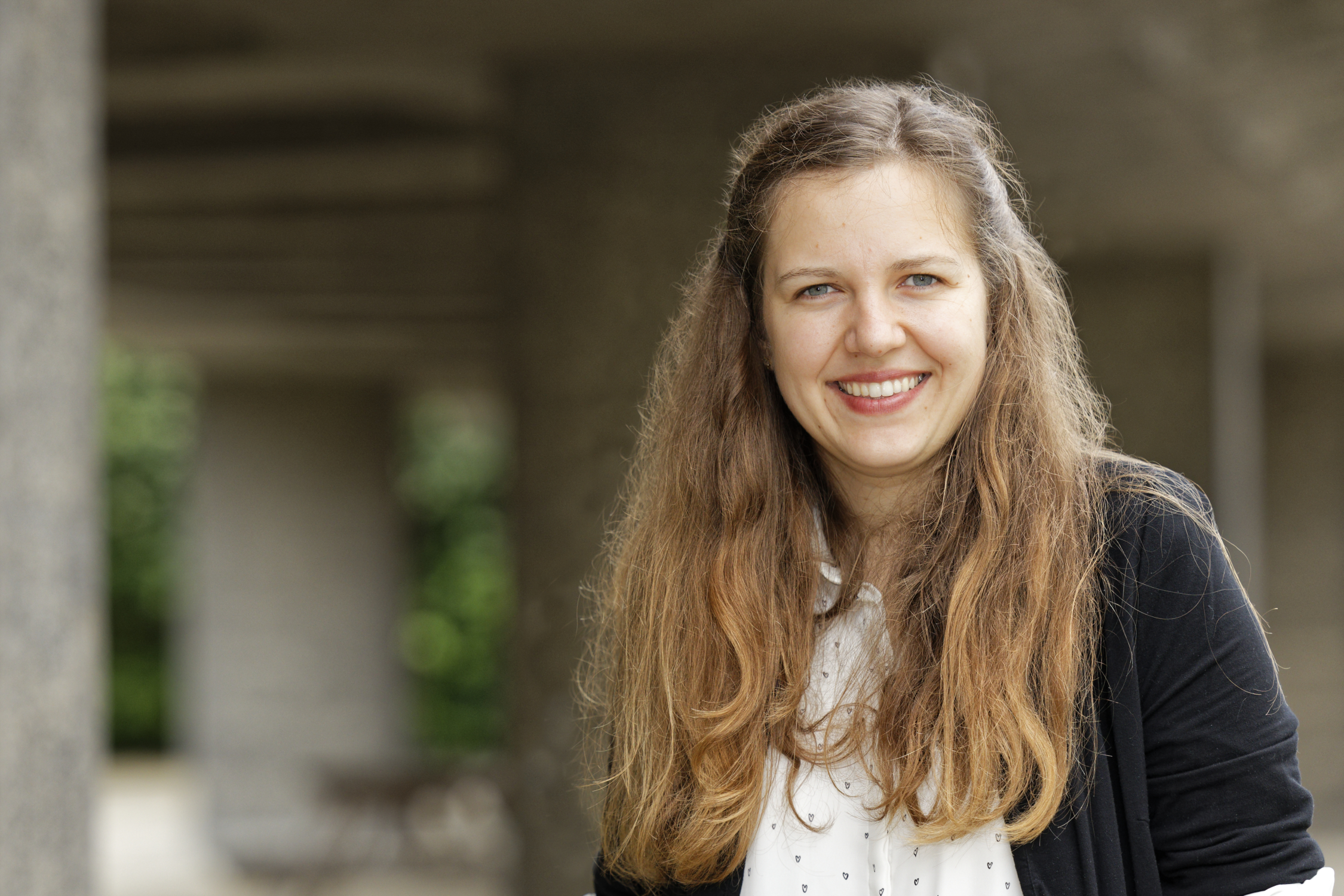
Alina Utrata speaks about her research on big tech power structures and how tech corporates interact with the state.
I focus on the infrastructural power of technology corporations, how they have power and how they interact with state power.
Alina Utrata
Alina Utrata’s family is very embedded in Silicon Valley and Alina grew up amid the Silicon Valley boom. Many of her school friends have gone on to take up jobs in tech companies and she has had a ringside seat at the rise of the tech giants.
“I’ve watched my hometown in the San Francisco Bay Area change over the years, yet many of the people changing it have been my friends,” she says.
That experience has fuelled an interest in the power of the tech giants as had the response to the Cambridge Analytica scandal which shocked many of her Silicon Valley friends.
However, her interest in the Cambridge Analytica issues around data manipulation has evolved into a focus on corporate power, especially tech corporations’ relationship with states. This isn’t just about technology. She cites the long history of corporations’ relationship with the state, such as the British East India Company’s role in empire building and in violence.
Alina [2020] says her supervisor Professor David Runciman has been fundamental to her thinking about tech giants, particularly on whether states also constitute some form of corporation. She says: “I focus on the infrastructural power of technology corporations, how they have power and how they interact with state power. For me it is interesting to see how the anti-state sentiments behind many tech companies interact with their corporate infrastructure and how Silicon Valley views itself.”
Early studies
Alina was born in San Francisco. Bother her parents are in science. Her mother, from the US, is a professor of psychiatry and runs a virtual reality psychiatry clinic. Her father, from the Czech Republic, is a doctor.
At school, Alina was very interested in politics, history and international affairs, inspired by her family’s annual visits to Europe. After school, she was accepted by Stanford and did a degree in History. When she started, Alina had wanted to study human rights and politics and did her undergraduate thesis on the impact of transitional justice on communities transitioning out of conflict, specifically in Bosnia and Herzegovina.
The university was very tech-dominated and Alina was shocked by how disinterested many of her fellow students were in political analysis. A watershed moment was the Cambridge Analytica affair where personal data from over 87 million Facebook users was improperly obtained by the political data-analytics firm to target voters with political propaganda. “Before that everyone was very excited about the potential of tech,” says Alina. “Then the talk became about its political impact. Their heart was in the right place, but they just hadn’t thought about the risks. Both of my interests collided.”
At the time of the Cambridge Analytica affair, Alina was doing her master’s at Queen’s University Belfast and says it was interesting to view the contrast in response to the scandal between her colleagues in Northern Ireland and acquaintances back home who were working in the tech industry, many of whom were young idealistic people who had not considered the potential political problems involved. She adds that the reaction to the scandal from tech companies has also been problematic because of that lack of political and local perspectives, for instance, suspensions of some local politicians in what seem like grand moral gestures based on the number of complaints received, but which lack a nuanced understanding of the politics of the local context.
Policing Northern Ireland
Alina’s master’s in Conflict Transformation and Social Justice at Queen’s University Belfast was funded by the Marshall Scholarship and focused on policing in Northern Ireland. Originally she had thought that it would be about sectarianism, but it turned out to be more about the impact of technology on policing and on police perceptions of their role. Policing had moved from being about the ‘bobby on the beat’ – the traditional model of an officer pounding the streets and knowing the area – to a job involving a lot of time filling in forms and looking at CCTV footage in an office. “The nature of state control has changed,” says Alina. “That surveillance society issue seemed bigger than policing to me, and very little research had been done on new digital surveillance in Northern Ireland.”
The dissertation was divided into three parts: how police viewed the history of policing in Northern Ireland, how they think of the police role during the Troubles, and what they think of the Police Service of Northern Ireland that replaced the Royal Ulster Constabulary.
After completing her master’s Alina returned home to figure out what she wanted to do. She worked at the Stanford Global Studies Division and says she felt torn between whether to go to law school or do a PhD.
During her studies she had worked at a variety of organisations, from the BrexitNI Law Clinic and KRW Human Rights Law Practice in Northern Ireland, the Asian International Justice Initiative in Phnom Penh and the Balkan Institute for Conflict Resolution, Responsibility and Reconciliation in Sarajevo to the US State Department in Washington DC. That gave her experience of policy and practice, but she was also drawn to academia.
Cambridge
At Stanford, Alina worked as a teaching assistant, helping to set up a human rights minor course, and really took to teaching. That minor has grown from an initial cohort of three students to more than 40 in just a couple of years. Her undergraduate adviser had suggested she apply to Cambridge and she says it is probably “the only institution” she could do her PhD at due in part to the plural approach of its politics department and its focus on the impact of technology on democracy.
 Aside from Professor Runciman, she has also worked closely with Professor John Naughton at the Minderoo Centre for Technology and Democracy at Cambridge* who, in addition to his academic credentials is also the technology columnist at The Observer, a leading Sunday newspaper in the UK.
Aside from Professor Runciman, she has also worked closely with Professor John Naughton at the Minderoo Centre for Technology and Democracy at Cambridge* who, in addition to his academic credentials is also the technology columnist at The Observer, a leading Sunday newspaper in the UK.
Alina started her PhD in 2020 in the midst of the Covid pandemic. That didn’t phase her, though. When students were sent home she started doing a student-facing podcast, The Anti-Dystopians, aimed at bringing them all together. Guests include Josh Lappen, studying the electrification of the American West at Oxford, who discussed the impact of nationalising Gmail and creating digital public infrastructure and taking it out of the hands of private companies. Another episode has focused on big tech companies attempts to ‘colonise’ space, a subject Alina wrote about for the Boston Review.
She says: “When I got to Cambridge there were so many people doing cool research so the podcast was a way for me to learn about their research.”
*Picture details: Alina with Professor John Naughton talking at the Minderoo Centre.












